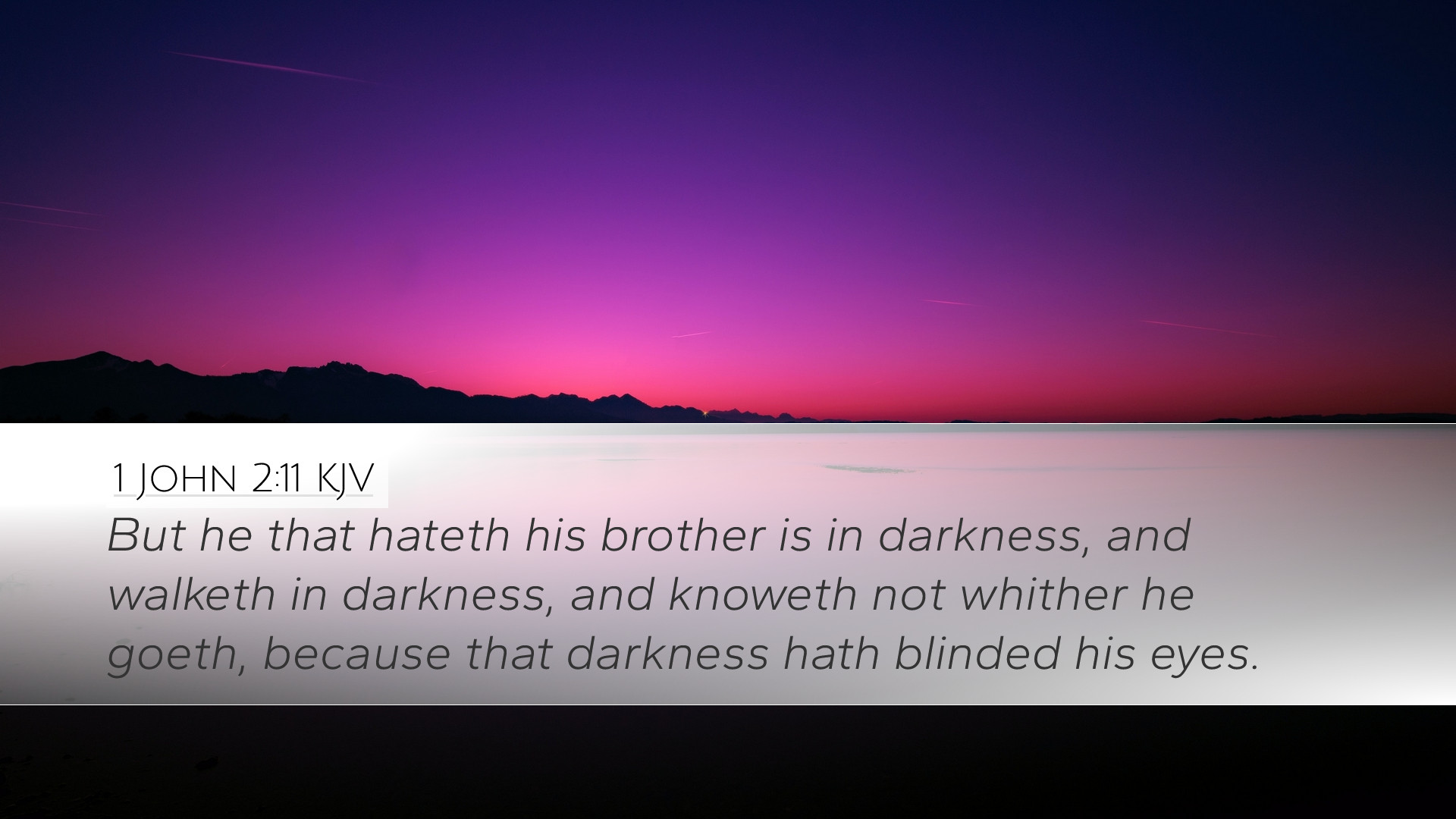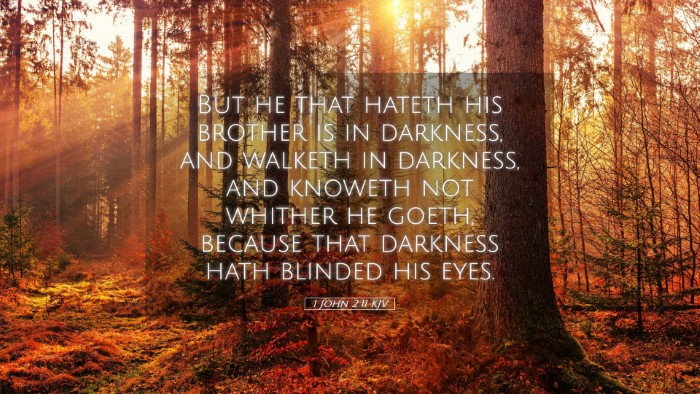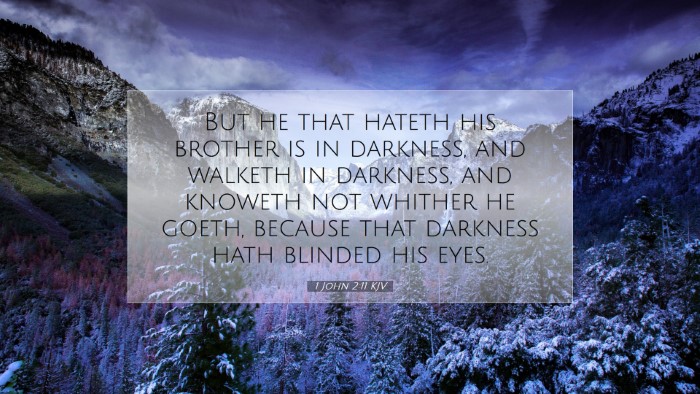Commentary on 1 John 2:11
Verse: "But he that hateth his brother is in darkness, and walketh in darkness, and knoweth not whither he goeth, because that darkness hath blinded his eyes." (1 John 2:11)
Introduction
This verse from 1 John encapsulates profound spiritual truths regarding love and hatred among believers. The Apostle John draws a stark contrast between two states of being: light and darkness, representing the moral choices of a Christian life. This commentary seeks to extract insights from respected public domain commentaries to elucidate the depth of this passage, contributing to our understanding as pastors, students, theologians, and Bible scholars.
Spiritual Blindness and Its Consequences
John emphasizes that hatred towards a brother is not simply a moral failing; it results in spiritual darkness. Adam Clarke notes that this darkness is a state of ignorance, where a person fails to recognize their moral and spiritual condition. Such blindness prevents the individual from understanding their direction in life.
- Insight from Matthew Henry: Henry asserts that to hate a brother signifies a departure from the path of light. He implies that love is an essential characteristic of a believer, whereas hatred is indicative of one who walks away from divine guidance.
- Albert Barnes' Perspective: Barnes adds that the one who loves is in fellowship with God, while the hater is in complete isolation from that divine relationship. He points out that this isolation brings about moral and spiritual confusion.
The Meaning of 'Brother'
Understanding who constitutes a 'brother' is crucial in this context. John is not limited to biological ties but extends this term to all fellow believers. This broad interpretation conveys that any animosity within the Christian community reflects severe spiritual implications.
- Matthew Henry's Insight: He remarks that the brotherhood in Christ emphasizes our mutual reliance and responsibility towards one another. Hatred towards a fellow believer, therefore, disrupts the unity and fabric of the body of Christ.
- Albert Barnes highlights: The universality of brotherly love as an obligation among Christians points to Christ’s teachings, where love serves as the primary commandment. The hatred that violates this command represents a disconnect from the Christian faith.
Contrast of Light and Darkness
The imagery of light versus darkness is a core theme in John's writings. In this verse, the darkness symbolizes sin and confusion, while light represents the truth of God’s word and love. The implications here are vast, as John provides a moral framework for living as a Christian.
- Adam Clarke explains: The darkness experienced by an individual who hates is not merely an absence of light but a form of moral decay that blinds one to the consequences of their actions, leading to further sin.
- Henry's View: He perceives this passage as a warning; the longer one walks in darkness (hatred), the greater the risk of becoming entrenched, leading to a point of no return without divine intervention.
The Spiritual Consequences of Hatred
John’s assertion that one who hates his brother "knoweth not whither he goeth" elucidates a disorienting plight experienced by the hater. This condition serves as both a spiritual critique and a wake-up call.
- Albert Barnes highlights: This blindness and lack of awareness signify that the person is lost in their spiritual journey. They may view themselves as righteous, yet their hateful disposition reveals a deeper estrangement from God.
- Matthew Henry reinforces: The idea that love should guide a believer's path underlines the necessity of discernment in one’s spiritual walk. Without love, one's understanding of God's will becomes obscured.
The Call to Love
In conclusion, the strong admonition embedded within 1 John 2:11 serves as a clarion call for believers to cultivate an attitude of love rather than hate. As the Church matures, it becomes increasingly important to reflect on how we treat one another.
- Adam Clarke's Perspective: He suggests that embracing love leads to clarity, purpose, and fulfillment in the believer’s life. In contrast, hatred is a barricade to genuine fellowship with God and with others.
- Final Thoughts from Matthew Henry: Henry encourages believers to be vigilant against hatred, emphasizing that true communion with God manifests as love in action.
Practical Applications
For pastors, students, theologians, and scholars, this verse invites deep reflection on the health of relationships within the community of faith. Hatred, in any form, undermines the core values of Christianity. The insights drawn from respected commentaries beseech us to examine our hearts and seek reconciliation where there may be strife.
Conclusion
1 John 2:11 serves as a poignant reminder of the transformative power of love within the Christian faith. Recognizing the perils of hatred can inspire believers to walk in the light of Christ, nurturing brotherly love that reflects the heart of God in a world cloaked in darkness.


